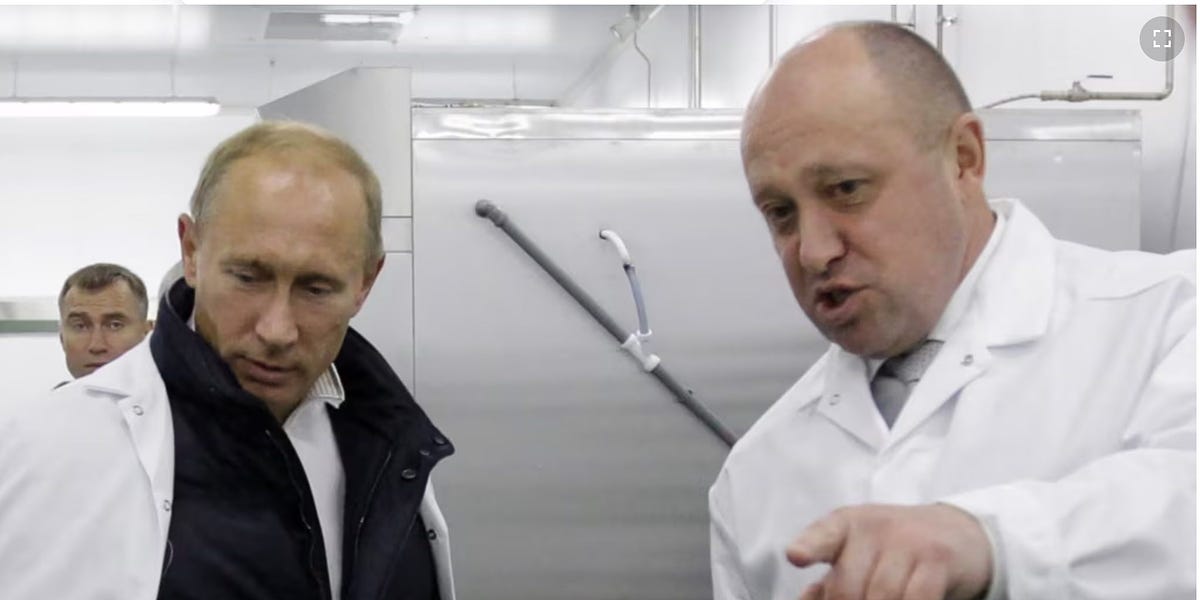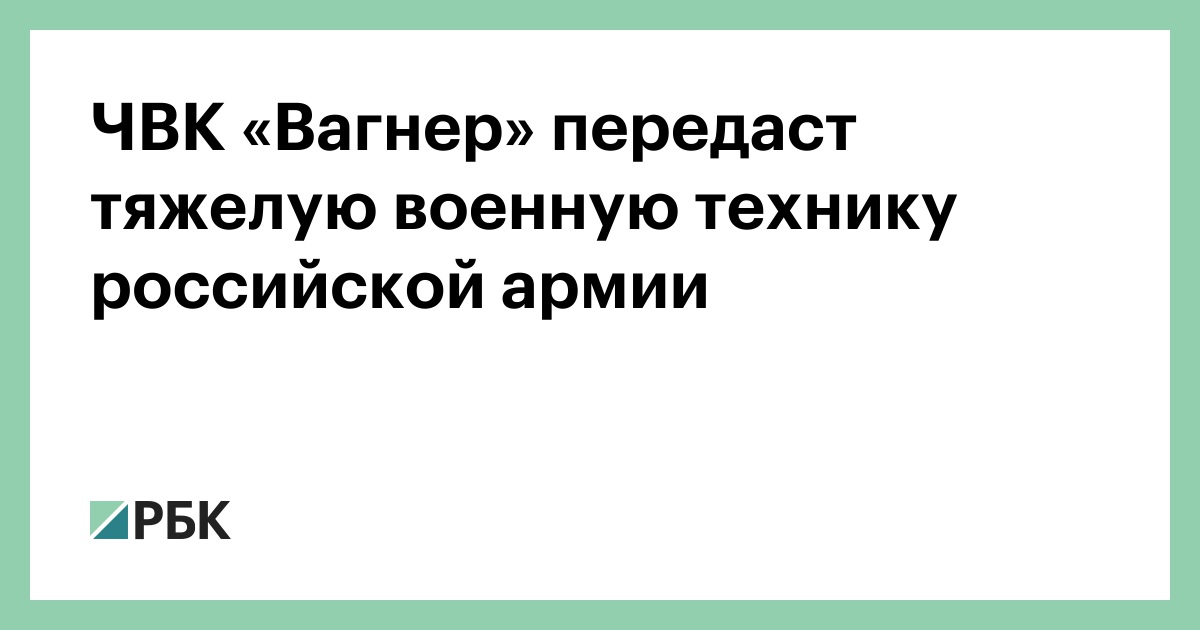Putin and Prigozhin: 30 years of a durable bond
The 'St. Petersburg group' has been the most powerful force in the Kremlin since 2000. Prigozhin and Putin share that bond, friendly since the mid 1990s. Think of Wagner as Putin's praetorian guard.
The tumult in Russia this weekend generated much hysteria and confusion. Western journalists, writing far from the events, published the usual nonsense, promoting the idea that President Putin is losing power and Russia will descend into civil war. But even pro-Russian analysts indulged in reckless speculation. Scott Ritter falsely claimed that Yevgeny Prigozhin, the Wagner group owner, is a NATO agent.
On the surface, this ‘mutiny’ was a conflict between Prigozhin and Defense Minister Sergei Shoigu. In fact, Prigozhin called it “the March of Justice”. Tensions between the two men have simmered for months, with Prigozhin often berating Shoigu and his generals on social media. Such outrageous behavior is unheard of and indicates that Prigozhin enjoys patronage that exceeds Shoigu. That can only mean one person.
Prigozhin acts confidently because he is a member of Putin’s inner circle. I doubt that this ‘mutiny’ was spontaneous, allegedly instigated by a Russian army missile attack against Wagner troops. I suspect that Prigozhin was acting according to a plan with the tacit or even active involvement of Putin. But towards what goal?
Wagner is the world’s most effective private military, serving nearly a decade as Putin’s praetorian guard — a highly loyal force that the President counts on to project Russian power abroad, and turn the tide on the battlefield against NATO/Ukrainian invaders in besieged Donbass.
If Prigozhin didn’t have such close relations with Putin, he’d have been jailed long ago. Remember: Russian law doesn’t even allow private military groups. Technically, Wagner shouldn’t exist. But it does, and the answer to “How” is quite obvious.
So, what happened this weekend in Rostov, which is home to the Southern Military District? Based on available information I conclude that Prigozhin carried out an important task for Putin. But what exactly?
Perhaps the task was to weed out a corrupt and disloyal fifth column in the government and military. In fact, in a recent public meeting Putin referred to incompetent generals, hinting that their days are numbered.
Or perhaps the ‘mutiny’ this weekend was an attempt to conduct confusing troop movements. The biggest problem Russia faces is NATO’s powerful surveillance capabilities. The enemy is aware of nearly every movement by the Russian military.
Also, this morning there are reports that Wagner is building a huge base in Belarus. Perhaps Wagner’s deployment to Belarus is an attempt to stop NATO efforts to overthrow President Alexander Lukashenko. Either way, NATO is panicking.
Oddly enough, Wagner continues to aggressively recruit new soldiers. The ‘mutiny’ has stimulated more Russian men to protect their Motherland. What a strange ‘mutiny’! The mutineers are allowed to grow even more powerful.
I don’t want to speculate any more about this ‘mutiny’ because events are still developing. Instead, I’d like to focus on important facts that have been forgotten or ignored, but which are vital in order to understand the context of this weekend’s events. Then, you can make your own conclusion.
1. Putin and Prigozhin have known each other at least since the mid 1990s. Both were born and raised in Leningrad (St. Petersburg). The locals share a special bond because of the city’s grandeur and eventful history. However, despite the city’s reputation as a cultural capital with a world-class intelligentsia, it’s also an industrial center with a sizable working-class. Privileged or not, all residents of Leningrad/St. Petersburg share a fierce love for their city and are raised with traditions and values that you won’t find anywhere else in Russia or the world.
2. While their young lives had different trajectories, both Putin and Prigozhin were molded by Leningrad’s rough post-War street culture where loyalty and one’s word of honor were vital to remain alive and thrive. How these men behave today is based on a shared understanding of strength, honor, respect and justice. If a man breaks his word and compromises his honor, then he’s finished. These concepts are entirely foreign to the western mind, with its obsession on legal contracts, NDAs and strict bureaucratic procedures.
3. Eventually, Putin went to work at the KGB and was stationed in Germany. The young Prigozhin went into crime and spent most of the 1980s in prison for theft. They operated in the same world, but on different sides of the barricade. In the 1990s, Prigozhin became a successful businessman. In 1995, he opened the city's first upscale restaurant, Staraya Tamozhnya, where the local elite dined. Putin became Mayor Anatoly Sobchak’s deputy in charge of external relations, handling visits of foreign dignitaries and businessmen. When you wanted to impress your foreign guests, you took them to Prigozhin’s Staraya Tamozhnya.
4. In the late 1990s, Prigozhin founded Concord Catering, which handled all the high-level state and private banquets in St. Petersburg. (I sometimes attended these). Again, Prigozhin rubbed shoulders with the city’s most powerful people, many of whom soon joined Putin in Moscow and became Russia’s new elite, the so-called “St. Petersburg group”. Prigozhin has been close to the Russian power elite for about 25 to 30 years. If you’re in the “St. Petersburg group”, then you’re the elite of the elite. This is a brotherhood of sorts, with common forged experiences from childhood through the wild 1990s and beyond.
5. When Putin became president on Dec 31, 1999, he quickly gathered his loyalists from St. Petersburg. In early 2000, I interviewed one of those loyalists, Vladimir Kozhin. He told me: “The president has many things to do in a short period of time, and it’s crucial for him to know that he has people he can count on and trust.” And so, St. Petersburg-born Prigozhin eventually became Putin’s fixer of sorts, the go-to-guy in tough situations at home and abroad.
6. Fast forward to 2014, when Prigozhin founded the Wagner private military group. Russian law does not allow for such groups, yet somehow Prigozhin was able to create the company. Since then, Wagner has led the most sensitive military operations for the Kremlin, especially in Syria and in Africa. The goal — to project Russian power abroad for the first time since the collapse of the USSR. Wagner has been a key asset, working in the Central African Republic, Libya, Mali, Sudan, etc. This means that Prigozhin has a direct line to the Kremlin.
7. Wagner soldiers are very patriotic. Many are vets with close ties to comrades in the regular army. Wagner’s victory in Bakhmut is Russia’s most significant victory in this war. Wagner pinned down and destroyed vast amounts of NATO/ Ukrainian resources. Do you think war heroes would mutiny against Putin, their Commander-in-Chief? Wagner troops command immense respect among the Russian people. This weekend, journalist Alina Lipp was in Rostov and she spoke with the Wagner troops, saying they were very friendly and not at all aggressive.
8. Finally, Prigozhin is a master of media manipulation who loves to troll and mess with the minds of the West. One is never sure when he’s telling the truth, or being sarcastic and simply mocking his opponents. In March, when a Wall Street Journal employee was arrested on charges of spying, Prigozhin commented: “I’ll check my torture chambers to see he’s there.” Prigozhin has a PR and media management company that was accused of interfering in U.S. elections by weaponizing social media. Such an operation must have had tacit approval from the President.
If Prigozhin truly was a threat to the President, then he’d have been arrested months ago, and he wouldn’t have left Rostov a free man in the wake of very odd negotiations that led to a quick resolution of the ‘mutiny’, allowing him and the Wagner army to find ‘refuge’ in allied Belarus.
What really happened this weekend might become fully evident in the coming weeks, or perhaps never. But as we can see from the above, Prigozhin has long been deeply embedded in Putin’s inner circle and has conducted highly sensitive operations for the Kremlin.
Until new information appears that might refute what I’m saying, I’ll go with the idea that this weekend Prigozhin acted in the interests of Russia on behalf of his old friend from St. Petersburg.


